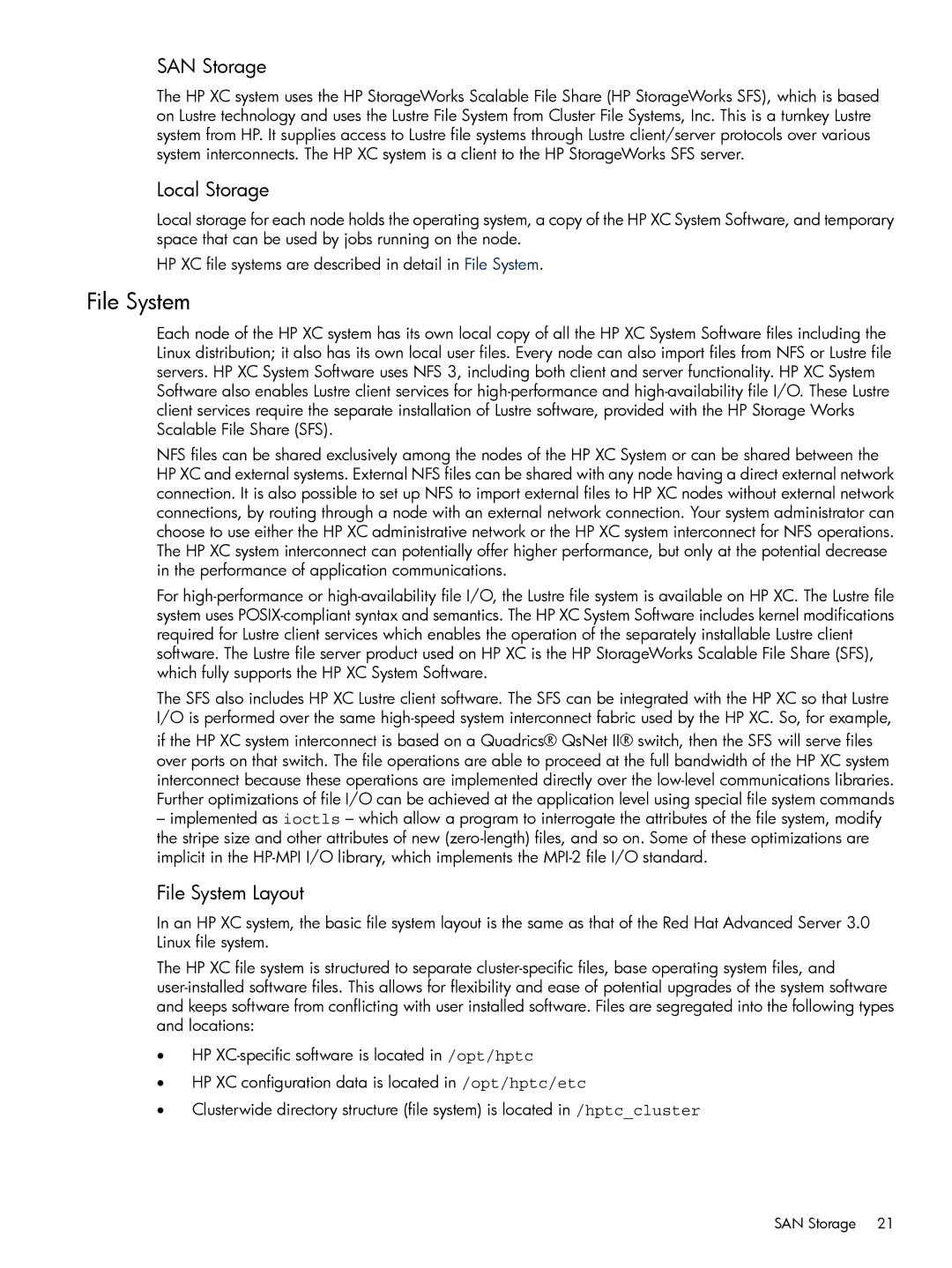SAN Storage
The HP XC system uses the HP StorageWorks Scalable File Share (HP StorageWorks SFS), which is based on Lustre technology and uses the Lustre File System from Cluster File Systems, Inc. This is a turnkey Lustre system from HP. It supplies access to Lustre file systems through Lustre client/server protocols over various system interconnects. The HP XC system is a client to the HP StorageWorks SFS server.
Local Storage
Local storage for each node holds the operating system, a copy of the HP XC System Software, and temporary space that can be used by jobs running on the node.
HP XC file systems are described in detail in File System.
File System
Each node of the HP XC system has its own local copy of all the HP XC System Software files including the Linux distribution; it also has its own local user files. Every node can also import files from NFS or Lustre file servers. HP XC System Software uses NFS 3, including both client and server functionality. HP XC System Software also enables Lustre client services for
NFS files can be shared exclusively among the nodes of the HP XC System or can be shared between the HP XC and external systems. External NFS files can be shared with any node having a direct external network connection. It is also possible to set up NFS to import external files to HP XC nodes without external network connections, by routing through a node with an external network connection. Your system administrator can choose to use either the HP XC administrative network or the HP XC system interconnect for NFS operations. The HP XC system interconnect can potentially offer higher performance, but only at the potential decrease in the performance of application communications.
For
The SFS also includes HP XC Lustre client software. The SFS can be integrated with the HP XC so that Lustre I/O is performed over the same
if the HP XC system interconnect is based on a Quadrics® QsNet II® switch, then the SFS will serve files over ports on that switch. The file operations are able to proceed at the full bandwidth of the HP XC system interconnect because these operations are implemented directly over the
–implemented as ioctls – which allow a program to interrogate the attributes of the file system, modify the stripe size and other attributes of new
File System Layout
In an HP XC system, the basic file system layout is the same as that of the Red Hat Advanced Server 3.0 Linux file system.
The HP XC file system is structured to separate
•HP
•HP XC configuration data is located in /opt/hptc/etc
•Clusterwide directory structure (file system) is located in /hptc_cluster
SAN Storage 21
